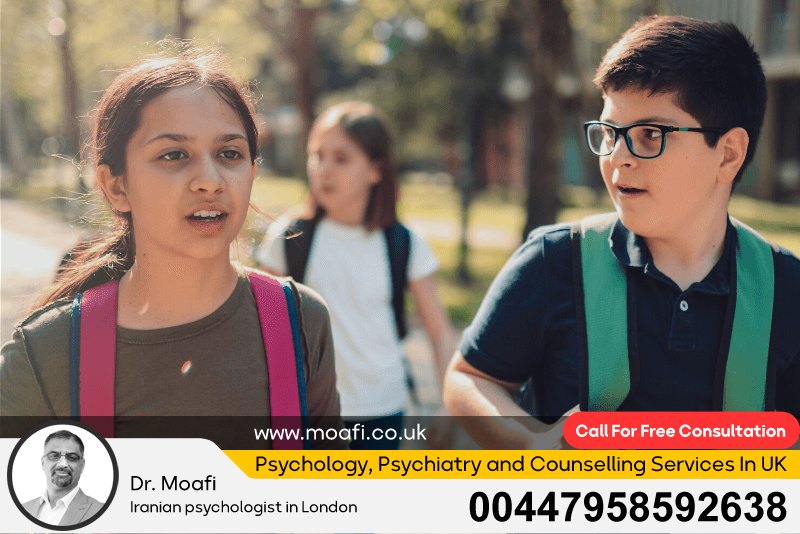Autism Assessment for Adolescents in London
Autism spectrum disorder (ASD) is a complex neurodevelopmental condition that affects individuals in various ways, particularly in social communication, behavior, and cognitive processing. For adolescents, undergoing an autism assessment is a crucial step towards understanding their unique challenges and strengths. In London, the process of autism assessment for adolescents incorporates a range of methods, including clinical interviews, standardized questionnaires, and observational assessments, tailored to meet the needs of the individual.
The first step in the assessment process typically involves gathering detailed information about the adolescent’s developmental history, including early signs of autism, social skills, and behavioral patterns. Parents or guardians play a vital role in providing this history, as they can shed light on the adolescent’s early milestones, language development, and any concerns that have arisen over time. This foundational information helps professionals formulate a comprehensive understanding of the individual’s experiences.
Professionals conducting the assessment may include psychologists, psychiatrists, and specialized therapists. They utilize standardized tools such as the Autism Diagnostic Observation Schedule (ADOS) and the Autism Diagnostic Interview-Revised (ADI-R) to evaluate symptoms systematically. These assessments not only consider the core deficits associated with autism but also assess co-occurring conditions such as anxiety, depression, and attention deficit hyperactivity disorder (ADHD), which are common among adolescents on the spectrum.
In London, access to these assessments typically varies based on public and private healthcare options. The National Health Service (NHS) provides pathways for referrals through general practitioners (GPs) or school-based assessments, though wait times can sometimes be lengthy. On the other hand, private assessments, although costlier, can offer quicker access and more personalized approaches, allowing for a tailored assessment experience.
Additionally, following the assessment, feedback sessions are critically important. They provide adolescents and their families with insights into the assessment findings, recommendations for support, and strategies for managing challenges. The outcome of the assessment can lead to tailored interventions, educational support, and therapeutic resources, empowering adolescents to thrive in their social and academic environments.
In conclusion, autism assessment for adolescents in London is an intricate and comprehensive process that aims to provide clarity and support to individuals and their families. By employing a structured and individualized approach, professionals can identify the specific needs of each adolescent, facilitating their journey toward understanding and acceptance of autism, thereby enhancing their quality of life.
Dr. Alireza Moafi: Autism Assessment for Adolescents in London
Dr. Alireza Moafi is a respected figure in the field of autism assessments for adolescents in London. With a solid background in psychology and extensive experience working with individuals on the autism spectrum, Dr. Moafi offers a compassionate and nuanced approach to understanding the complexities of autism. His practice emphasizes the importance of personalized care, where each assessment is tailored to the unique needs and circumstances of the adolescent being evaluated.
Dr. Moafi employs a comprehensive assessment methodology that takes into account a multi-faceted view of autism. He believes that understanding the individual’s environment, relationships, and personal history is as vital as assessing behavioral symptoms. This holistic perspective allows Dr. Moafi to gain insight into the adolescent’s strengths and challenges, ultimately providing a more rounded understanding of their condition.
His approach often includes conducting detailed interviews not only with the adolescents but also with their families, educators, and other caregivers. By gathering input from various sources, Dr. Moafi is able to paint a clearer picture of how autism manifests in different contexts, which is crucial for effective intervention. Furthermore, he utilizes well-established diagnostic tools, ensuring that his assessments are thorough and adhere to current best practices in the field of autism diagnostics.
Beyond assessments, Dr. Moafi is dedicated to providing ongoing support and resources for families. Following the assessment process, he offers feedback sessions where he explains the findings and discusses potential strategies for intervention and support. He understands that receiving a diagnosis can be overwhelming for families, and he strives to create an environment where they feel informed and empowered to make decisions regarding their adolescent’s care.
Dr. Moafi also stays updated on the latest research and developments in autism studies, integrating contemporary findings into his practice. His commitment to professional development ensures that he remains at the forefront of autism assessment methodologies, which enhances the quality of support provided to adolescents and their families.
In the diverse metropolitan landscape of London, where adolescents come from varied backgrounds and experiences, Dr. Alireza Moafi exemplifies a thoughtful and individualized approach to autism assessment. His work not only helps identify autism spectrum disorders but also fosters understanding and acceptance, ultimately contributing to improved outcomes for adolescents navigating the complexities of life on the spectrum. Through his dedication and expertise, Dr. Moafi plays a crucial role in advancing autism awareness and support in London.
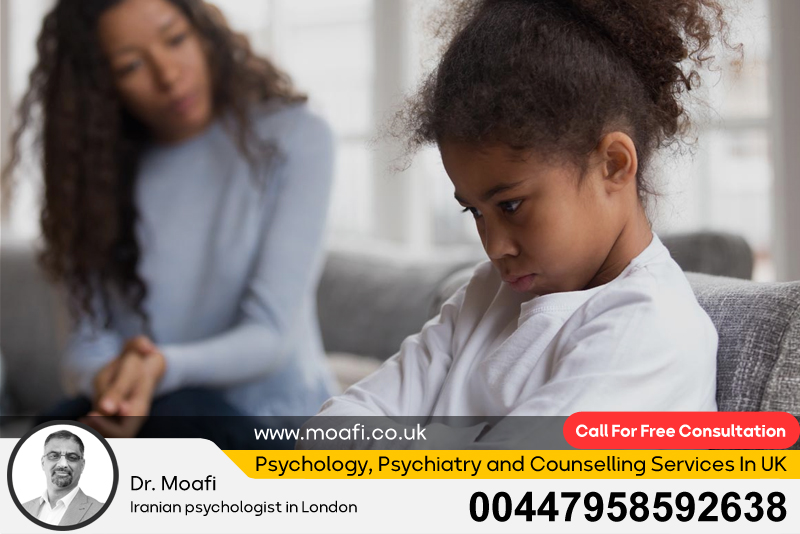
Autism for Adolescents
Autism spectrum disorder (ASD) is a lifelong condition that manifests differently in each individual, with unique challenges and strengths. For adolescents, the impact of autism can be particularly significant as they navigate the transitional phase between childhood and adulthood. During this period, social and emotional demands become more complex, making it essential for parents, educators, and mental health professionals to recognize and address the unique needs of adolescents on the spectrum.
Adolescents with autism often experience difficulties in social interactions and communication, which can lead to feelings of isolation or frustration. They may struggle with understanding social cues, body language, and the nuances of conversations. This can manifest as challenges in forming friendships and maintaining relationships. While some adolescents display an interest in social activities, they might find it overwhelming or confusing to engage with peers in typical social settings, such as school, extracurricular activities, or social gatherings.
Another significant aspect of autism in adolescents is the presence of restricted interests or repetitive behaviors. Many individuals may engage in specific hobbies or topics, often immersing themselves in these interests to a degree that may seem obsessive to others. While these passions can be a source of joy and expertise, they may also lead to difficulties when adolescents are encouraged or forced to participate in activities outside of their comfort zone.
Sensory sensitivities are also common among adolescents with ASD. They may exhibit heightened or diminished responses to sensory stimuli, including sounds, lights, textures, or smells. This can lead to sensory overload in certain environments, resulting in anxiety or meltdowns. Understanding and accommodating these sensory needs are crucial in helping adolescents navigate their daily lives effectively.
As adolescents progress through high school and prepare for adulthood, the need for independence often arises, posing additional challenges. Many must learn essential life skills, including self-advocacy, time management, and coping strategies. Developing these skills can be crucial for successful transitions into higher education, vocational training, or employment opportunities.
Ultimately, supporting adolescents with autism requires a collaborative effort from families, schools, and mental health professionals. Comprehensive, individualized support systems tailored to their unique strengths and challenges are essential for helping them navigate the complexities of adolescence and emerge as confident, self-sufficient individuals. By fostering understanding and acceptance, we can create a more inclusive society where adolescents with autism are empowered to thrive.
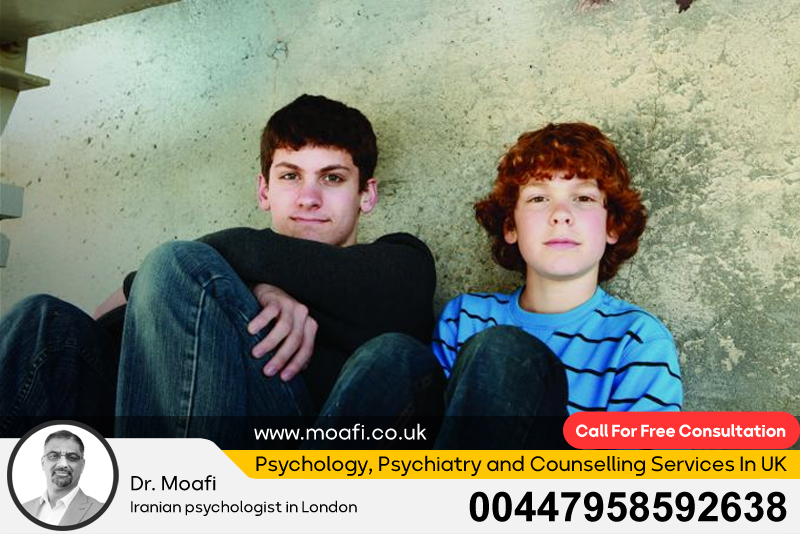
Signs and Symptoms of Autism Spectrum Disorder in Adolescents
Recognizing the signs and symptoms of autism spectrum disorder (ASD) in adolescents is crucial for early identification and intervention. As individuals transition from childhood to adolescence, certain behaviors may become more apparent, helping parents, educators, and professionals to understand their specific needs and challenges. Symptoms of ASD can vary widely; however, some common indicators include difficulties with social interaction, communication issues, and patterns of restricted interests or repetitive behaviors.
Social interaction difficulties are one of the hallmark signs of autism. Adolescents with ASD often struggle to read social cues, understand body language, and interpret facial expressions. They may find it challenging to initiate or maintain conversations, leading to misunderstandings or conflicts with peers. As social dynamics can become increasingly complex during adolescence, those on the spectrum may feel isolated or excluded from typical social interactions, exacerbating feelings of loneliness or anxiety.
Communication challenges are also prevalent among adolescents with autism. This can include difficulties in expressing thoughts or emotions, interpreting verbal and non-verbal communication, and engaging in reciprocal conversation. Some may rely on echolalia, repeating phrases or scripts they’ve heard in specific contexts, which may not always be appropriate for the conversation at hand. This can result in misunderstandings and can hinder the development of authentic connections with peers.
Repetitive behaviors and restricted patterns of interest are common in adolescents with autism. These behaviors can manifest as adhering to specific routines, engaging in repetitive motor movements (such as hand-flapping or rocking), or focusing intensely on particular hobbies or topics. While these interests can provide a sense of comfort and joy, they may also lead to challenges when the individual is required to explore new activities or adapt to changes in routine.
In addition to these core characteristics, adolescents with ASD may also experience co-occurring mental health issues such as anxiety, depression, and attention deficit hyperactivity disorder (ADHD). These conditions can further complicate social interactions and overall emotional well-being, necessitating holistic approaches to support and treatment.
Recognizing the signs and symptoms of autism spectrum disorder in adolescents is vital for ensuring timely assessment and intervention. Early identification allows for tailored support systems to be implemented, helping adolescents develop essential social skills, emotional regulation strategies, and coping mechanisms. By fostering an environment of understanding, acceptance, and support, it becomes possible to empower adolescents with autism to thrive and reach their full potential.
What is Autism in Adolescents?
Autism spectrum disorder (ASD) is a neurodevelopmental condition characterized by a range of challenges in social communication, behavior, and cognitive processing. In adolescents, autism manifests in unique ways as individuals navigate the complexities of teenage life. While autism is present from early childhood, its identifiable features can sometimes become more pronounced during adolescence, a time when social expectations increase and individual identities begin to take shape.
At its core, autism affects how adolescents perceive and interact with the world around them. Many adolescents on the spectrum struggle with social communication skills, which can make navigating friendships and peer relationships particularly challenging. They may have difficulty understanding social norms, such as intimacy in friendships or the subtleties of humor, which can lead to misunderstandings or isolation. These social challenges often increase during adolescence as peer relationships become more central to identity formation and self-esteem.
Additionally, adolescents with autism may engage in restricted interests or repetitive behaviors. These can serve as coping mechanisms, providing comfort and structure amid the uncertainties of adolescent life. For instance, an adolescent may develop a deep passion for a particular subject, such as a specific genre of music, a type of technology, or a favorite sport. While these interests can be a source of pride and accomplishment, they may also limit their willingness to explore new activities or social interactions, which is a crucial aspect of adolescent development.
The transition to high school and considerations surrounding future career paths can create additional stress for adolescents on the spectrum. The expectations associated with academic performance, social participation, and eventual independence can feel overwhelming. Therefore, tailored support systems, including special education services, therapy, and social skills training, are vital in helping adolescents with autism navigate these challenges effectively.
Furthermore, adolescents with autism may also face various sensory sensitivities. Many individuals on the spectrum have heightened or reduced responses to sensory stimuli, such as lights, sounds, and textures. This can lead to sensory overload in stimulating environments like schools or social gatherings, triggering anxiety or behavioral difficulties.
Ultimately, understanding what autism is in the context of adolescence is key to supporting these individuals through their unique challenges and facilitating their growth. By fostering a supportive and inclusive environment, families and educators can empower adolescents with autism to embrace their individuality while equipping them with the tools necessary for successful integration into society.
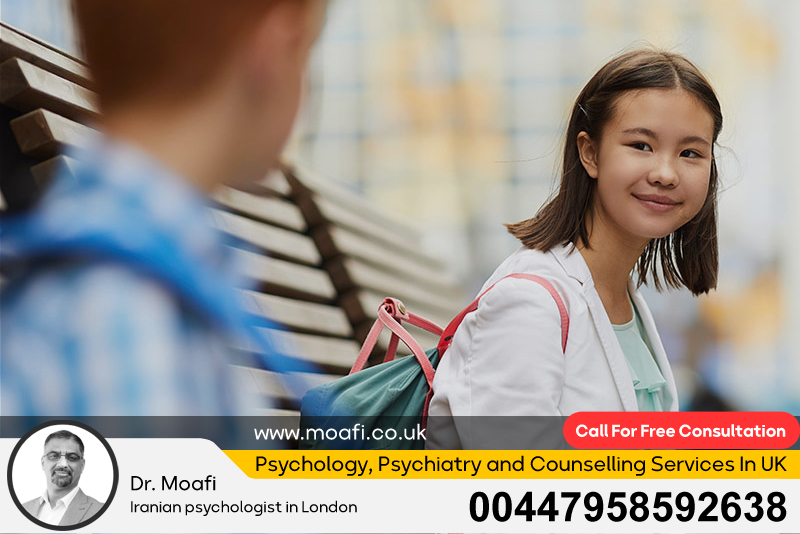
What Causes Autism in Adolescents?
The precise causes of autism spectrum disorder (ASD) are still not fully understood, and research is ongoing to unravel the complex interplay of genetic and environmental factors involved in its development. Current scientific consensus suggests that autism is likely caused by a combination of genetic predispositions and environmental influences, creating a multifaceted picture of how the disorder manifests in individuals.
Genetic factors play a significant role in the development of autism. Studies indicate that individuals with a family history of ASD are at a higher risk of being diagnosed with the condition. Specific genetic mutations and variations have been identified, particularly those affecting the development and functioning of the brain. However, no single gene has been pinpointed as the sole cause of autism. Instead, researchers believe that the interaction of multiple genes contributes to the likelihood of developing autism, with each variant potentially influencing different aspects of neurodevelopment.
Environmental factors may also contribute to the onset of autism. Researchers are exploring a range of potential environmental influences that may interact with genetic predispositions during critical periods of brain development, particularly in utero and early childhood. Some studies have investigated factors such as maternal health during pregnancy, exposure to environmental toxins, or complications during birth. While none of these factors have been definitively linked to autism, they may contribute to a higher risk when combined with genetic vulnerabilities.
Additionally, there is increasing evidence that factors such as advanced parental age and certain prenatal conditions may influence the likelihood of an ASD diagnosis. For instance, advanced maternal or paternal age has been associated with a slightly increased risk, suggesting that age-related changes in genetic material or reproductive health might impact neurodevelopment.
It is important to note that while numerous theories and studies exist, the complexity of autism means that establishing clear cause-and-effect relationships is challenging. Moreover, autism is a spectrum disorder, which means that the factors contributing to its development can vary significantly among individuals.
Ultimately, understanding what causes autism in adolescents remains an area of active research. By continuing to study the interaction between genetics and environmental factors, scientists hope to shed light on the origins of autism and inform early intervention strategies. This knowledge is crucial not only for enhancing our understanding of the condition but also for providing better support and resources for adolescents and their families as they navigate life on the spectrum.
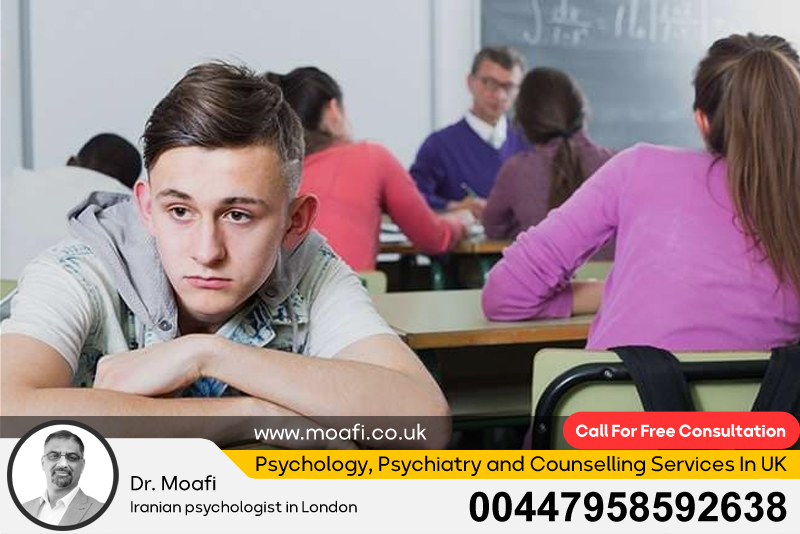
Treatment of Autism in Adolescents
The treatment of autism spectrum disorder (ASD) in adolescents is a multifaceted approach designed to address the unique challenges faced by each individual on the spectrum. As adolescents transition from childhood to adulthood, treatment focuses not only on the core symptoms of autism but also on fostering independence, improving social skills, and enhancing overall quality of life. A combination of behavioral therapies, educational support, medication, and family involvement is often the most effective strategy for managing the various aspects of autism.
One of the primary treatment modalities for adolescents with autism is Applied Behavior Analysis (ABA). This evidence-based approach involves using reinforcement strategies to encourage positive behaviors and reduce challenging ones. ABA is highly individualized, allowing practitioners to tailor interventions to the specific needs of each adolescent. For example, social skills training may be integrated into ABA sessions to help adolescents develop better communication and relationship-building skills, which are crucial during this developmental stage.
Additionally, cognitive-behavioral therapy (CBT) is commonly employed to help adolescents manage co-occurring conditions such as anxiety or depression, which are frequently seen in individuals with autism. CBT focuses on identifying and challenging negative thought patterns, equipping adolescents with practical coping strategies to navigate their feelings and experiences. This therapeutic approach is particularly beneficial as adolescents face increasing academic pressures, social challenges, and the complexities of identity formation.
Educational support is also critical for adolescents with autism. Individualized Education Programs (IEPs) are developed to provide personalized learning experiences tailored to each student’s strengths and challenges. These programs may involve accommodations such as extended time on tests, modified assignments, or access to specialized education staff. Schools that foster an inclusive environment can significantly enhance the educational experiences of adolescents with autism, encouraging social integration and skill development.
In some cases, medication may be prescribed to manage specific symptoms related to autism, such as anxiety, depression, or attention difficulties. While there is no medication to treat autism itself, pharmacological interventions can help regulate mood and improve overall functioning. Collaboration with healthcare providers is vital to find the right balance and ensure that any medication prescribed aligns with the adolescent’s overall treatment plan.
Family involvement is a crucial component of treatment. Educating families about autism and equipping them with strategies to support their adolescent can foster a more understanding and nurturing home environment. Support groups and family therapy can also provide an opportunity for families to share experiences and gain valuable insights from one another.
In summary, treatment for autism in adolescents is comprehensive and individualized, incorporating behavioral therapies, educational support, medication, and family engagement. By addressing the unique needs of each adolescent, treatment can significantly enhance their social skills, emotional well-being, and overall quality of life, helping them navigate the challenges of adolescence with greater confidence and resilience.
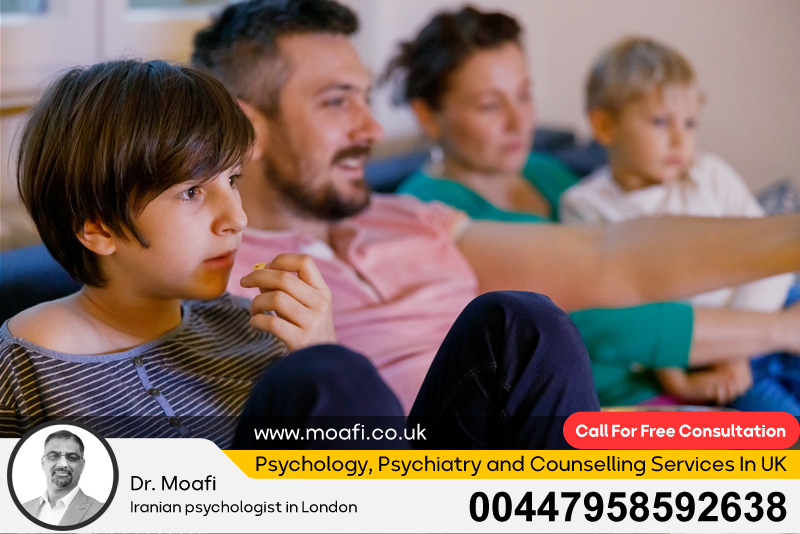
Autism in Adolescents: Symptoms, Causes, Types, and Testing
Autism spectrum disorder (ASD) is a complex neurodevelopmental condition that encompasses a range of symptoms, causes, types, and testing methods. For adolescents, recognizing the nuances of autism is essential for understanding their challenges and providing appropriate support.
Symptoms of autism in adolescents can be categorized into three main areas: social communication difficulties, restrictive behaviors, and sensory sensitivities. Social communication challenges may manifest as difficulties in initiating and maintaining conversations, interpreting social cues, and understanding body language. Adolescents may struggle to form friendships or may feel more comfortable interacting through technology rather than face-to-face encounters. Restrictive behaviors often include intense focus on specific interests or repetitive actions, which can serve as coping mechanisms but may limit flexible thinking and adaptability. Sensory sensitivities can lead to heightened responsiveness to environmental stimuli, creating discomfort or distress in social situations, school settings, or crowded environments.
Understanding the causes of autism is essential for clinicians and families alike. While research suggests that genetics play a significant role in the development of autism, environmental factors may also contribute. Studies indicate a complex interplay of multiple genes and environmental influences that can affect brain development during pregnancy and early childhood. Factors like advanced parental age, prenatal exposure to certain medications, and complications during birth have been explored as potential contributors to autism risk. However, the multifactorial nature of autism means that no single cause can be pinpointed.
Regarding the types of autism, the term “spectrum” reflects the wide range of symptoms and severity that can occur in individuals. For adolescents, the most commonly recognized types include classic autism, Asperger’s syndrome (now often considered part of the broader autism spectrum), and pervasive developmental disorder-not otherwise specified (PDD-NOS), which encompasses cases that do not fit neatly into the other categories. Adolescents may present with varying levels of support needs, from requiring significant assistance in daily life to being highly independent yet facing social communication challenges.
Testing for autism in adolescents typically involves a comprehensive evaluation by trained professionals, including psychologists, psychiatrists, and developmental specialists. The assessment process may include clinical interviews, structured observational assessments, and standardized questionnaires designed to evaluate the adolescent’s social communication skills, behavior patterns, and developmental history. Input from parents, teachers, and other caregivers is crucial in providing a comprehensive understanding of the adolescent’s functioning across different environments.
In conclusion, understanding autism in adolescents involves recognizing the various symptoms, potential causes, types, and testing methods associated with the disorder. With comprehensive insights into these aspects, families and professionals can work together to create effective support systems and interventions that promote positive outcomes for adolescents on the spectrum. This holistic understanding fosters a more inclusive environment where individuals with autism can thrive and contribute their unique perspectives to society.
Dr. Alireza Moafi Will Help You Treat Autism in Adolescents
Dr. Alireza Moafi has firmly established himself as a leading authority in the field of autism treatment for adolescents. With a deep understanding of the complexities associated with autism spectrum disorder (ASD) and a compassionate approach to care, Dr. Moafi aims to empower adolescents and their families through effective interventions tailored to individual needs. His holistic treatment philosophy emphasizes not only addressing the core symptoms of autism but also fostering essential life skills that enhance social interaction, emotional regulation, and overall well-being.
At the heart of Dr. Moafi’s practice is a commitment to personalized care. He recognizes that each adolescent with autism is unique, possessing distinct strengths, challenges, and experiences. To develop an effective treatment plan, he conducts comprehensive assessments that delve into the individual’s developmental history, behavioral patterns, and social interactions. By gathering input from parents, teachers, and other caregivers, Dr. Moafi gains insight into how autism manifests in different environments, allowing for a more nuanced understanding of the adolescent’s needs.
One of the key treatment modalities employed by Dr. Moafi is Applied Behavior Analysis (ABA). This evidence-based approach focuses on reinforcing positive behaviors while reducing those that are problematic. With ABA, Dr. Moafi tailors interventions to build social communication skills, enhance adaptability, and promote independence. He integrates social skills training into his practice, helping adolescents develop practical strategies for building friendships and navigating social situations, which are often challenging for those on the spectrum.
In addition to behavioral therapies, Dr. Moafi emphasizes the importance of family involvement throughout the treatment process. He provides resources and support to families, helping them understand autism and equipping them with strategies to foster a nurturing home environment. This family-centered approach is essential in enabling adolescents to thrive, as it reinforces the skills learned in therapy within the context of the family unit.
Dr. Moafi’s dedication to ongoing professional development ensures that he is aware of the latest research and therapeutic techniques in the field of autism treatment. By integrating new findings into his practice, he remains at the forefront of autism care, continually improving the support provided to adolescents and their families.
In summary, Dr. Alireza Moafi’s expertise and compassionate approach to treating autism in adolescents make him a valuable resource for families navigating the complexities of autism. Through personalized care, evidence-based interventions, and family involvement, Dr. Moafi is committed to empowering adolescents on the spectrum to lead fulfilling and independent lives.
Free Consultation for Adolescents with Autism
Dr. Alireza Moafi understands that navigating an autism diagnosis can be overwhelming for both adolescents and their families. In recognition of this, he offers a free consultation for adolescents with autism, providing an opportunity for families to explore treatment options, ask questions, and gain insights into the support available to them. This initial consultation is designed to foster a welcoming environment where families can discuss their experiences, concerns, and goals related to autism.
The free consultation serves as an invaluable first step in building a collaborative therapeutic relationship between Dr. Moafi and the adolescent. During this session, he takes the time to assess the adolescent’s unique needs, challenges, and strengths. It allows families to share their observations regarding the individual’s behavior, social interactions, and academic performance. This dialogue is essential in identifying the specific areas where support is needed and setting the groundwork for potential interventions.
One of the key benefits of the free consultation is that it alleviates the pressure of making immediate decisions about treatment. Families can take this time to gather information without the financial burden that often accompanies initial assessments. Dr. Moafi believes that informed decision-making is crucial in choosing the right path forward, and he aims to equip families with the knowledge they need to make the best choices for their adolescent.
During the consultation, families will learn about the various treatment options available, including behavioral therapies, educational support, and strategies to improve social skills. Dr. Moafi emphasizes the importance of a personalized approach, explaining how treatment plans can be tailored to fit the unique needs of each adolescent and their family dynamics. He also encourages families to ask questions about the treatment process, expected outcomes, and ways they can actively participate in supporting their adolescent’s journey.
Moreover, the consultation provides an opportunity for families to gauge Dr. Moafi’s approach and philosophy regarding autism treatment. They can assess whether his values align with their own, ensuring a good fit between clinician and family. This rapport is essential for fostering a trusting therapeutic relationship that supports the adolescent’s growth and development.
In conclusion, Dr. Alireza Moafi’s offer of a free consultation for adolescents with autism is a pivotal opportunity for families seeking guidance and support. By allowing families to explore treatment options in a low-pressure environment, this initiative empowers them to make informed decisions about their adolescent’s care. With compassion and expertise, Dr. Moafi is dedicated to providing the necessary resources to help adolescents navigate the challenges of autism and thrive in their daily lives.



